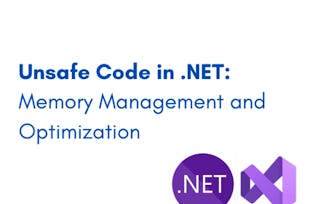This course features Coursera Coach!
A smarter way to learn with interactive, real-time conversations that help you test your knowledge, challenge assumptions, and deepen your understanding as you progress through the course. Rust is renowned for its ability to ensure memory safety without a garbage collector, and this course will equip you with the tools to navigate Rust's ownership model, references, borrowing, and more. Through practical examples and in-depth explanations, you’ll gain hands-on experience managing memory safely while structuring your programs effectively. By the end of this course, you’ll understand the foundational concepts like ownership, borrowing, and references and be able to apply them to write memory-efficient, safe programs in Rust. The course begins with an introduction to ownership and its significance in Rust's memory management, followed by a deep dive into references and borrowing. You'll learn how to efficiently handle data and manage memory through concepts like slices, structs, enums, and generics. In addition, you’ll explore Option and Result enums for managing errors and optional values, ensuring that you write reliable and safe applications. This course is ideal for intermediate programmers who want to enhance their understanding of memory management and safety in systems programming. It is perfect for developers interested in learning Rust or transitioning from other languages.



















